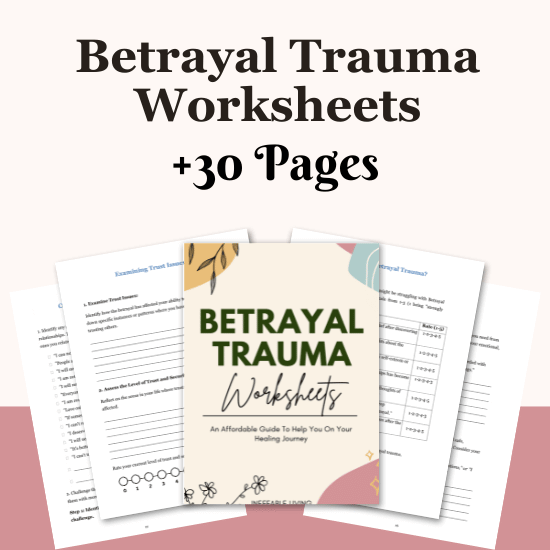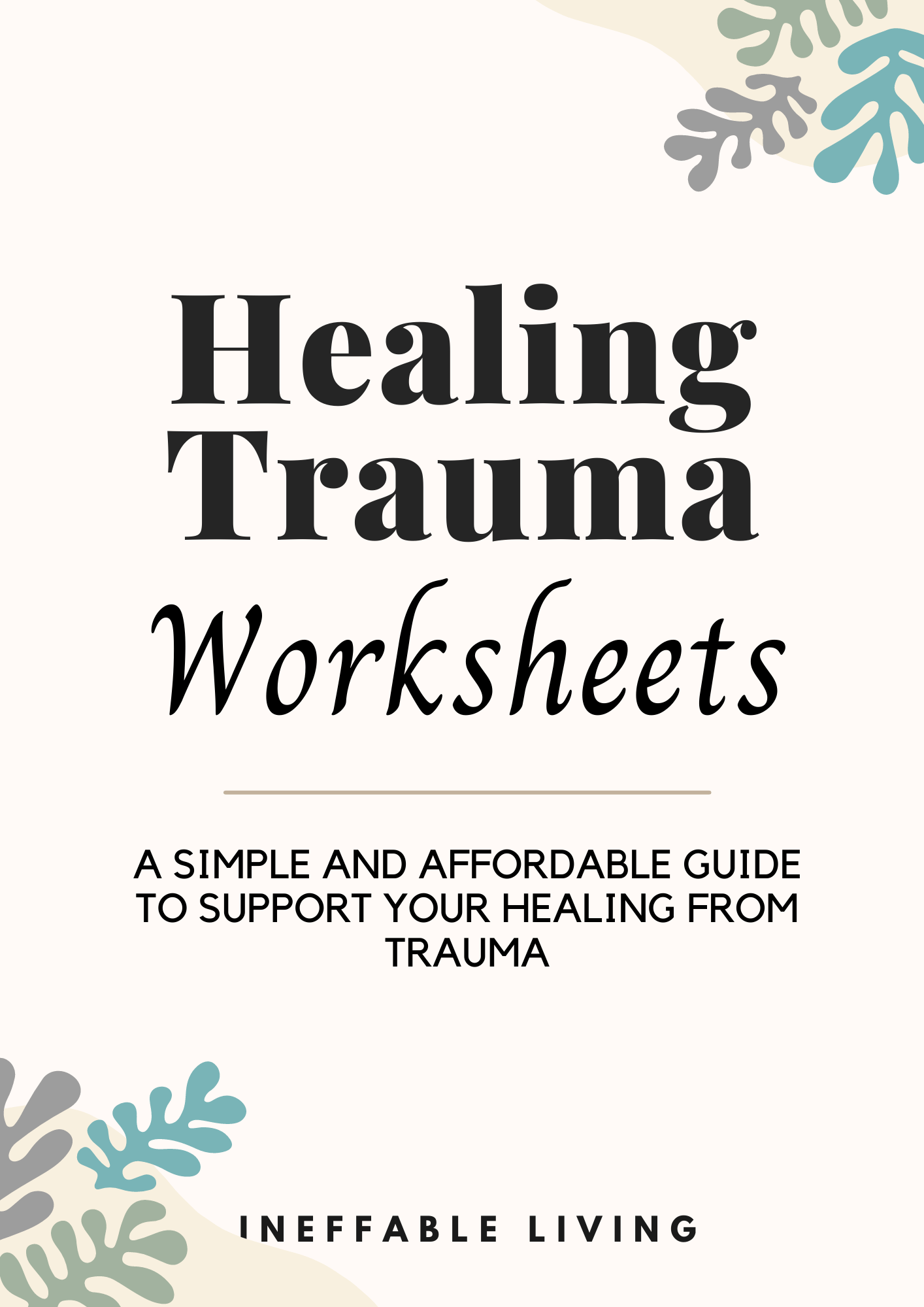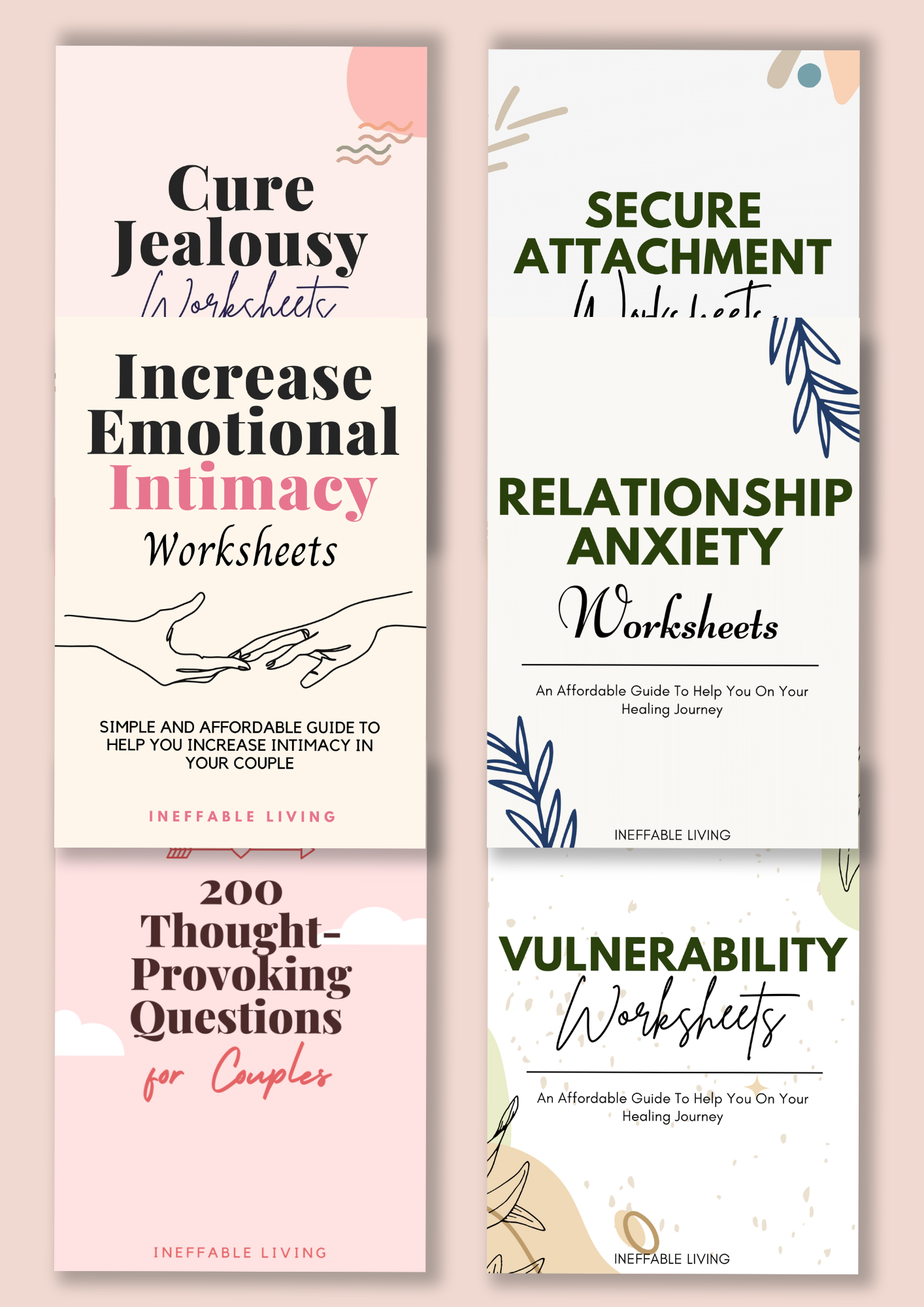1. Reflect on the specific experiences or events that have contributed to your feelings of betrayal. What actions or behaviors have caused you to experience betrayal trauma?
2. Consider the emotions that arise in connection to the betrayal you've experienced. How do these emotions manifest in your thoughts and daily life?
3. Reflect on any physical sensations or changes in your body that accompany thoughts or memories of the betrayal. How does your body respond to the trauma?
4. Explore the impact of the betrayal on your sense of safety and trust. How has the trauma affected your ability to trust others or yourself?
5. Identify any patterns or triggers that intensify the emotional and psychological impact of the betrayal. What situations or reminders tend to evoke heightened distress?
6. Consider the ways in which the betrayal has influenced your beliefs about relationships, loyalty, and vulnerability. How has it shaped your worldview and expectations?
7. Reflect on any self-blame or self-criticism that has emerged in the aftermath of the betrayal. How have you internalized feelings of shame or responsibility for the actions of others?
8. Explore the role of rumination and intrusive thoughts in perpetuating the emotional distress associated with betrayal trauma. How do recurring thoughts and preoccupations affect your well-being?
9. Reflect on the potential impact of the betrayal on your identity and self-concept. In what ways has the trauma affected how you perceive yourself and your worth?
10. Consider the support systems and coping strategies that have been instrumental in helping you navigate the challenges of betrayal trauma. How have trusted individuals or resources provided comfort and guidance?
11. Reflect on the process of setting boundaries and reclaiming a sense of agency in the aftermath of betrayal. How have you established boundaries to protect your emotional well-being?
12. Identify aspects of your healing journey that have provided moments of strength, resilience, or growth. What glimmers of hope or progress have you observed along the way?
13. Consider the potential role of forgiveness in the context of betrayal trauma. How do you define forgiveness, and what might it look like to navigate this complex emotional process?
14. Reflect on the values and aspirations that guide your efforts to heal from the experiences of betrayal. How do your values influence the choices and commitments you make in your journey toward healing?
15. Identify small acts of self-care and compassion that you can integrate into your daily life as you navigate the complexities of betrayal trauma. What practices or rituals help you feel grounded and nurtured?
Betrayal Trauma Worksheets





